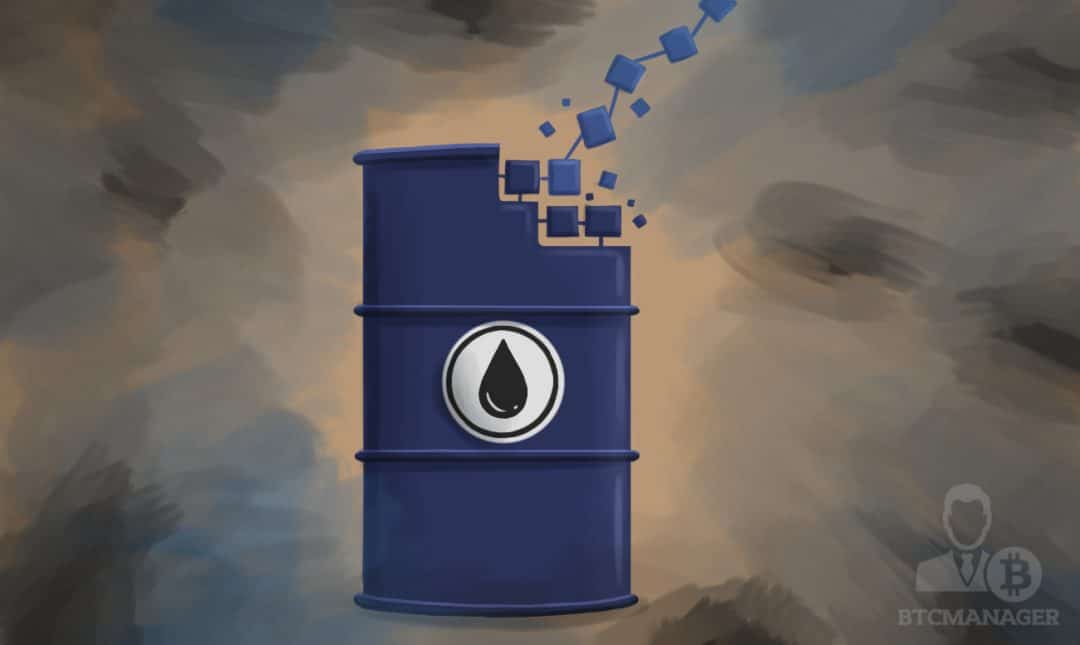$2.7 Billion (per day) Oil Business Set to Kick Paper Out for Blockchain

In an industry notorious for its paperwork, the maritime transporters of half of the world’s crude oil supply are looking to the blockchain to revamp the shipping industry’s backend.
Although utilizing a decentralized ledger would be a giant leap forward, it could result in significant job losses. Several dozen tankers set sail from global ports daily, generating transactions worth $2.7 billion. Thousands of workers and millions of liters are involved in the tanker industry every day.
The Dinosaur at the Docks
A bill of lading demonstrates ownership on the high seas. Mercuria Energy Group’s global COO Alistair Cross confirmed the outdated mechanisms at play in the industry. “The way we do our title transfers and post-trade execution is very heavy on paperwork,” he said.
Pointing to an antique in the technological age, he stated that the paper-based system “hasn’t really evolved over the last couple of hundred years.” At often in over of $122 million a ship, ownership, and security of trade on the high seas all comes down to one bill, after a mammoth paper trail. Some of the biggest players are considering blockchain technology to replace the current onerous system.
Apart from cost savings, it’s anticipated that efficiency will rise in a market squeezed for margins. “In our business,” said Souleïma Baddi, the MD and deputy head, commodity trade finance of Switzerland’s Societe Generale, “you have people managing transactions all over the world.”
Imagining a decentralized ledger, he said that people “will perform their tasks immediately – directly on their phone or on their iPad where they do their job” – rather than relying on others to collect the necessary paperwork.” The “others” in question are the thousands of unseen paper-pushers who tie shipping chains together. Applying blockchain technology would not only eliminate paper errors and hours lost amassing the documentation, but would also have the negative consequence of displacing thousands of jobs worldwide.
Speaking from Amsterdam, the global head of trade commodity finance at ING Groep, Anthony van Vliet said:
“Clearly, these jobs will be affected. If ultimately there are savings, it will mean you could do the same work with less people.”
Some serious obstacles stand in the way of a global rollout, however. The adoption cost and associated reskilling would be astronomical. There is also a huge hesitation from industry players about essentially publishing the workings of the industry online.
Moreover, there is the issue of recognition. A slip of paper ties all the way into existing systems down to the last detail, anywhere in the world. Van Vliet points out that there is currently “no case law” that would set a precedent enabling the adoption of digital recognition. Blockchain transactions simply don’t have the legal standing needed to transact yet.
Security Concerns Might Win Out
Paper documents are susceptible to theft and fraud, however, and the watertight security of a blockchain construct has massive appeal to the shippers and especially the onshore buyers. Cross confirmed, saying that “People have bought and paid for goods off fraudulent title documents, only to discover that what they thought they bought wasn’t there.”
Most large trading concerns have a powerhouse of digital technology already storing and sorting their data. The challenge would be to homogenize the industry and enable all players to populate the same platform.
A consortium of commodity traders, and petrochemical giants that include BP Plc, Royal Dutch Shell Plc and bankers like ING Groep NV, Societe Generale SA, and ABN Amro Bank NV has already been developing and trialing a blockchain application for oil trading. Australia and others are also looking at their geographic contribution to get the ball rolling along more efficient lines.













